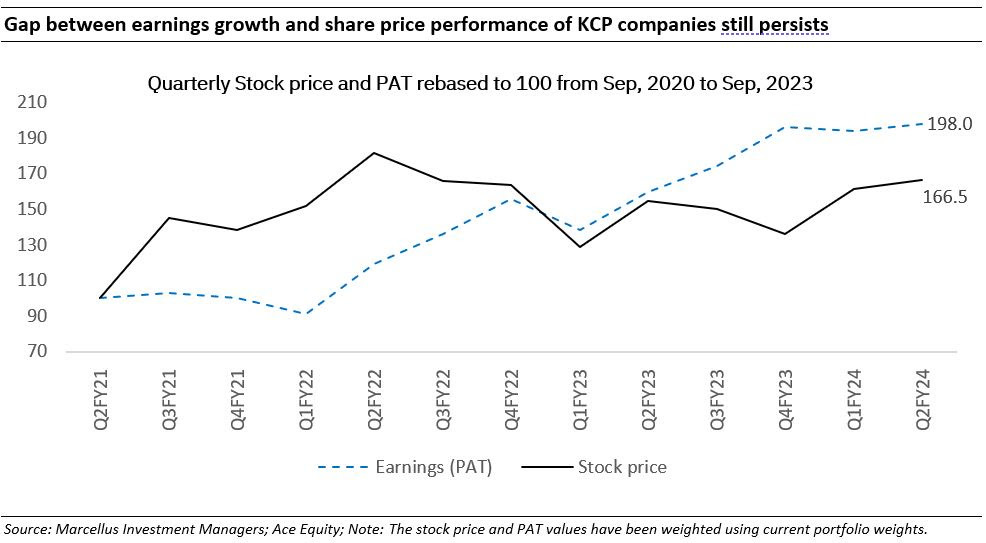Books & Money (17 Dec 2023)
How did Stephen Curry go from an average recruit to NBAs most valuable player?
How did Stephen Curry go from a poor recruit to NBAs most valuable player? The answer to this question is Deliberate Play. Stephen is a kid of an NBA star but he did not have the physical attributes to become one himself. Scouts wrote that he was "extremely limited by his poor physical tools. He doesn’t have the size, the strength, or the lateral quickness/athleticism.… He probably is never going to end up being a star in the league because of a lack of explosiveness.” The coach at Davidson College said “He was awful. He threw the ball into the stands, he dropped passes, he dribbled off his foot, he missed shots.”
And then he started training with Brandon. In his first full season after training with Brandon, the player set the NBA record for most three-pointers made. The two previous record holders for the most three-pointers in a career took over 1,300 games to set their standards. Curry eclipsed them in just 789 games. A few years later, he was named the NBA’s most valuable player in back-to-back seasons.
What the hell did Brandon do to convert this average player into a superstar?
Brandon has been training Curry for over a decade now. He told me he began with a basic principle:
He set up the scaffolding to make the hardest parts of practice easier—to help Curry make more progress while relying less on sheer discipline.
To make practice fun while building technical skills, Brandon created a menu of deliberate play activities. In Twenty-One, you get a minute to score twenty-one points with three-pointers, jump shots, and layups (worth one). But after each shot, you have to sprint to the middle of the court and back. Getting out of breath during that game simulates the fatigue of the real game. “Every drill is a game,” Brandon explains. “There’s always a time to beat. There’s always a number to beat. If you beat the number and you don’t beat the time, you still lose.”
The downside of competing against others is that you can win without improving. They might have a bad day, or you might benefit from a stroke of good luck. In Brandon’s form of deliberate play, the person you’re competing with is your past self, and the bar you’re raising is for your future self. You’re not aiming for perfect—you’re shooting for better. The only way to win is to grow.
Rather than repeating the same challenges over and over, Brandon mixes them up. In twenty-minute intervals, Brandon has Curry bouncing from one shooting-and-quickness challenge to another.
The variety isn’t just motivating—it’s also better for learning. Hundreds of experiments show that people improve faster when they alternate between different skills. "The workouts can become a little monotonous if you let them,” Steph Curry told a reporter. Deliberate play “creates a game-like situation with pressure,” he said, which means “you have to stay locked in and focused.”
“He loves the process. That’s one of the things that ties all great athletes together,” Curry’s longtime coach Steve Kerr observes. “There’s a routine … but it’s really enjoyed each day. There’s a passion that comes with it, and that’s what sustains it over time. When you love something like those guys do, you work at it, you get better and you just keep going.”
But research shows that even deliberate play shouldn’t be done all day every day. When we work nights and weekends our interest and enjoyment in our tasks drop. Yo-Yo Ma limits his practice to between three and six hours a day and strives to avoid early-morning and late-night sessions. Chopin urged his students not to practice more than two hours a day in the summer.
“Worthwhile practice is where progress is made. It’s about quality, not quantity. You need to feel there’s a shift—something is different when you walked out of the room.”
Without enjoyment, potential stays hidden.
*These stories and ideas are from the book Hidden Potential: The Science of Achieving Great Things by Adam Grant.
COMPOUNDING IS THE SECRET SAUCE, THE ROCKET FUEL, THAT CREATES FORTUNES
What should you do when the companies you have invested in are gobbling up market share and growing profit after tax at an average of 25% but the prices of these stocks do not reflect these strong fundamentals? You double down and buy more because sooner or later the irrational Mr. Market is going to start offering prices which reflects their worth. This is what is happening with the Kings of Capital portfolio.
If you have a long enough time horizon (5-20 years), earnings and stock prices move in coherence. If you have time and money on your side, investing in KCP would be a wise choice.
*Full Disclosure: I am an investor in Marcellus. I am also an NISM certified PMS Distributor for Marcellus. It is the only PMS I advise my friends and family to invest in.
Harsh Batra
LinkedIn & Instagram
I build businesses, help friend compound their money through only 1 PMS, and share lessons from what I learn. Over 7000 people read this free Sunday email. Subscribe here.




